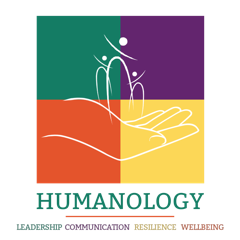Humanology Versus Technology
In today’s hyper-connected world, technology permeates every aspect of our lives, including the workplace. While technology undoubtedly offers numerous benefits, such as increased efficiency and global connectivity, it can also have unintended consequences, such as decreased face-to-face interaction, increased distraction, and even burnout.
“Humanology,” the study of human behaviour and interaction, emphasizes the importance of prioritising human connection and well-being in a technology-driven world.
The Rise of Technology and its Impact:
- Increased Efficiency: Technology has undoubtedly revolutionised the workplace, enabling faster communication, remote work, and increased productivity.
- The “Always-On” Culture: Constant connectivity can lead to a sense of constant pressure and the inability to truly disconnect, contributing to stress and burnout.
- Erosion of Interpersonal Skills: Over-reliance on digital communication can erode essential interpersonal skills like active listening, empathy, and non-verbal communication.
- The Impact on Mental Health: Studies have shown that excessive technology use can negatively impact mental well-being, contributing to anxiety, depression, and sleep disturbances.
Finding the Balance:
- Prioritizing Human Interaction:
- Encourage face-to-face meetings and team-building activities.
- Dedicate specific times for “no-tech” zones within the workplace.
- Foster a culture of open communication and active listening.
- Leveraging Technology for Good:
- Utilise technology to enhance human connection, such as video conferencing for remote teams.
- Implement tools that promote collaboration and teamwork.
- Encourage the use of technology for learning and professional development.
- Leadership’s Role:
- Leaders play a crucial role in setting the tone for technology use within the organisation.
- They must model healthy technology habits and prioritise employee well-being.
Investing in Humanology:
By prioritising human connection, fostering a positive work environment, and cultivating strong interpersonal skills, organisations can harness the power of technology while mitigating its potential downsides.
About Wendy Chalmers Mill:
Wendy Chalmers Mill is an expert in the field of “Humanology,” focusing on how humans behave and relate to each other and their surroundings. She specializes in human relationships, offering fun and inspiring workshops on verbal and non-verbal communication, both individually and within teams, as well as in authentic leadership. Her programs are designed to motivate staff by creating a workplace culture and environment that promote corporate harmony and productivity. Wendy acts as a catalyst for vision building, empowering others to reach their optimum potential. Her clients range from Business Growth Clubs, the NHS, Standard Life, to the Scottish Parliament and House of Commons. She is widely published, frequently featured in the national press, and has been interviewed on television and radio numerous times.
By embracing the principles of “Humanology,” organisations can create a more human-centric workplace where employees thrive, and businesses flourish.
Learn how The Humanology Business can help your organization achieve a healthy balance between technology and human interaction. Contact us today for a free consultation.
